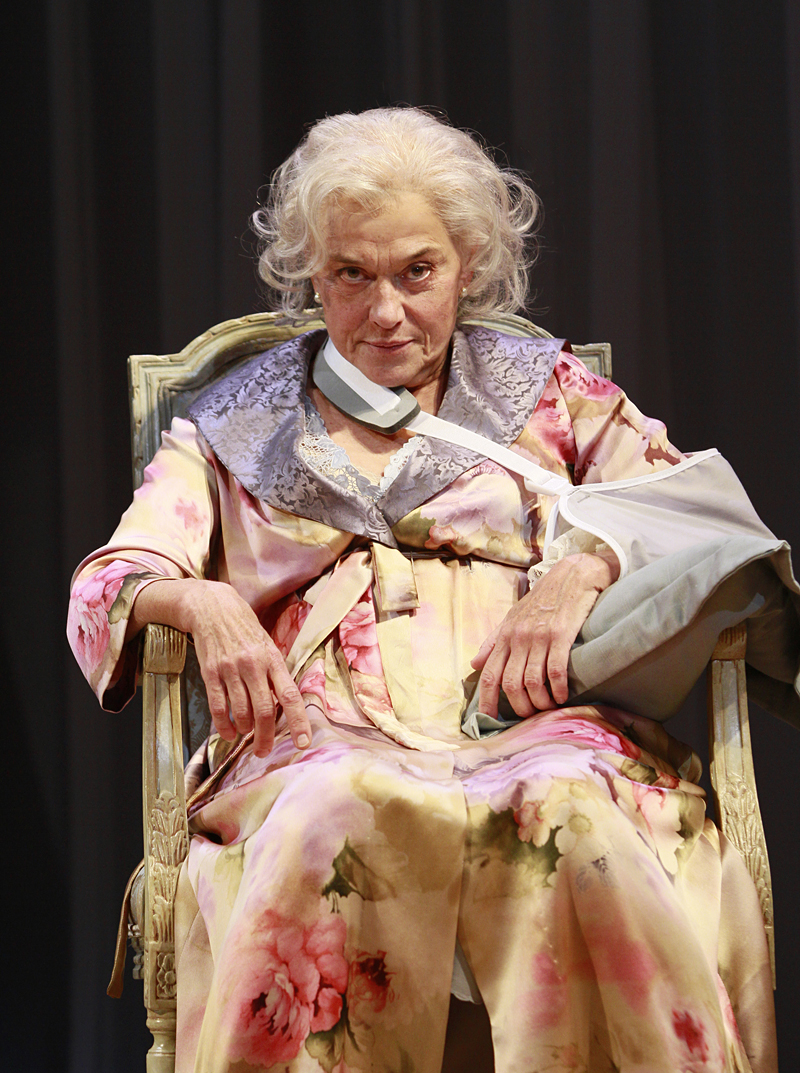Edward Albee is known to directors as a bit of a control freak, his scripts full of directives about staging and how lines should be delivered. The loss of control is apt to be fertile dramatic material for such a man, and so it is with this 1991 Pulitzer-winning character study, in which a protagonist suffering from Alzheimer’s comes to terms with her conflicted life. The Rep’s version, directed by Allison Narver, stoically delivers what Albee ordered while sneaking in a few moments of texture he never intended, and the capable cast brings plausibility to several nearly unplayable situations.
Both acts take place in the well-appointed, upper-bourgeois bedroom suite—all empire silks and high, shirred, white curtains—of the protagonist, a proud, conventional person whose life was shaped by a socially ambitious marriage and the resentments that followed. Played by Megan Cole, this elderly lady (who, like the other characters, is never named) spends the first act ranting, weeping, whooping, and reminiscing, attended by her glamorous aide (Suzanne Bouchard) and her young estate lawyer (Alexandra Tavares).
Cole’s expressive range makes the recursive, frustrating rhetoric of forgetfulness more than tolerable. Bouchard’s and Tavares’ characters are put in the awkward position of having been given too much unmotivated bickering, alternating with overly attentive listening (especially by Bouchard’s character—who, we can only imagine, has heard every scrap of the narrative many times before). But Act 1 is just a portal to the more interesting second act, in which the main character fractures into three versions of herself as the result of a stroke.
As the youngest of the three incarnations, Tavares nicely captures the blithe confidence of a 26-year-old with looks and popularity on her side. It seems that before the old woman was bigoted and bitter, she was merely vain and optimistic. Indeed, the worst of the protagonist’s hardening apparently happened around middle age: Bouchard surges forth like a bilious, taffeta-trussed panzer, plowing over Tavares’ hopeful youth with tales of betrayals, her disappointing marriage, her broken back, and her son’s homosexuality. (Albee’s own adoptive mother disapproved of his.)
Eventually the estranged gay son (Nick Garrison) comes to visit her deathbed, and Narver has the old lady and the dapper, silent, grieving son actually get on the bed together, on opposite sides of a lifelike dummy. This fleeting tableau feeds a craving you may not realize you had. Even Albee might be pleasantly surprised by the dénouement.








